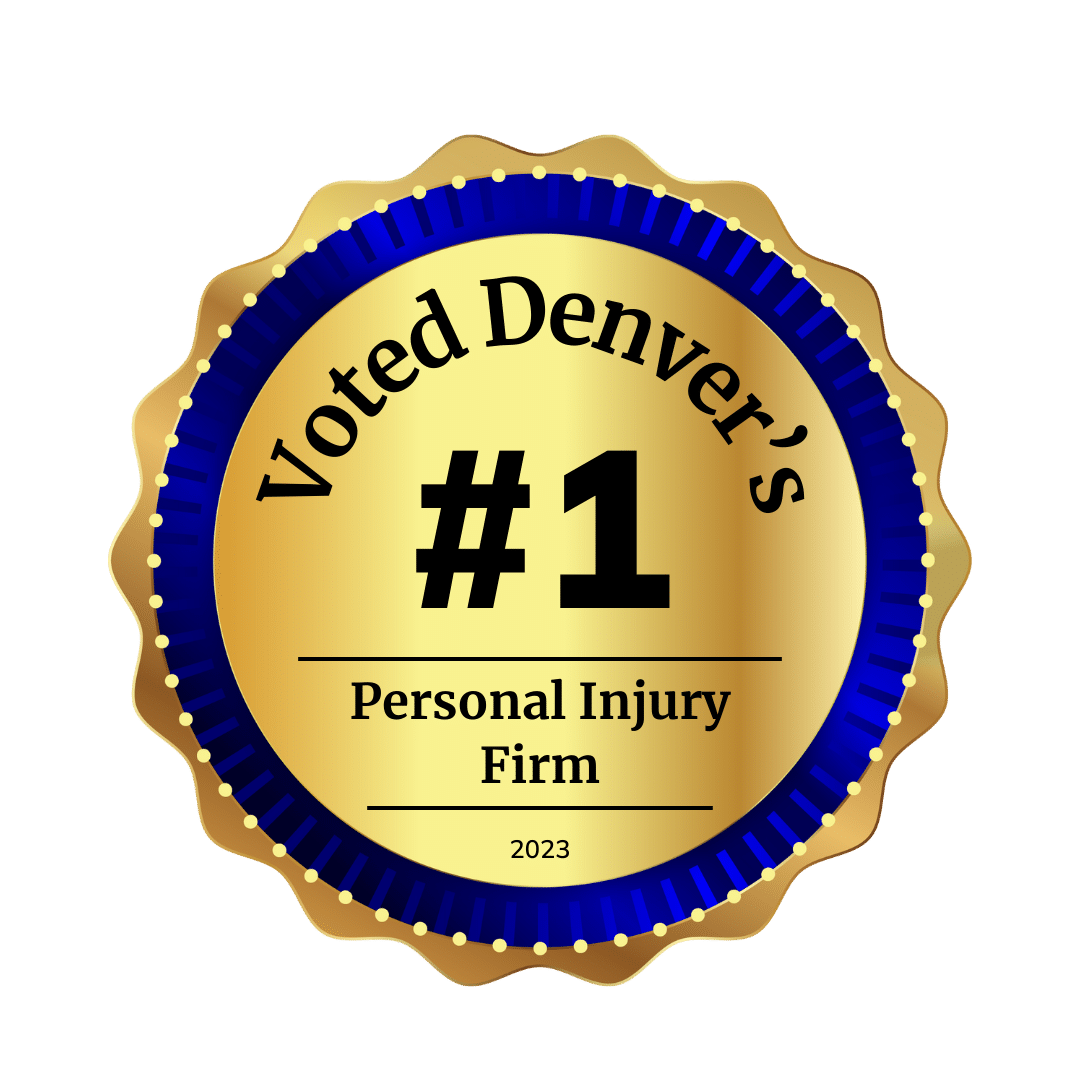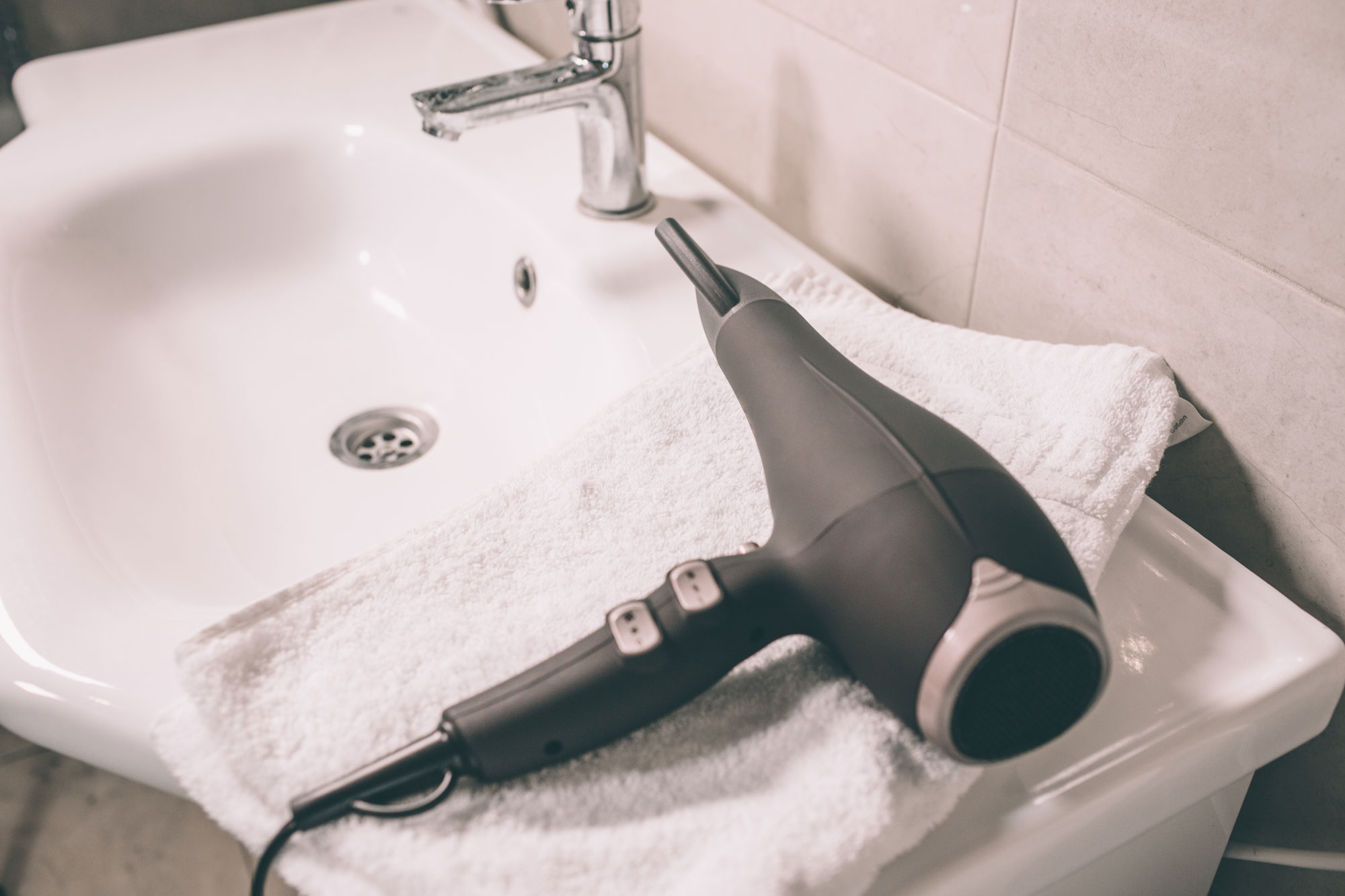
Legal Help in Colorado
Real Lawyers for Real People
Honorable, Tenacious, and Exceptional Trial Attorneys

Legal Help in Colorado
Real Lawyers for Real People
Honorable, Tenacious, and Exceptional Trial Attorneys
You Don’t Pay Unless We Win
Honorable Client Service
When you need a lawyer, you need someone with integrity who truly cares about you. We promise to always treat you with kindness, honesty, compassion, thoughtfulness, and respect.
Tenacious Representation
Our team works tirelessly to maximize your recovery in your personal injury case. We fight for your rights.
Exceptional Trial Attorneys
We are seasoned trial advocates who use the latest case management, research tools, and technology to present your case.
Our Personal Injury Practice Areas
We specialize in difficult cases!
From a Grateful Crash Victim
★★★★★
“This firm has been a true blessing from start to finish. They handled all my worries, insecurities, and issues with professionalism. They fought for me as if I were family.
I cannot say enough about this law firm! If you need legal representation for a motor vehicle accident, you definitely need Help in Colorado. Highest rating and approval I can give…many thanks for all you’ve done to help me.”
— Justin
Your Personal Injury Advocate for Maximum Recovery
When you’ve been injured due to someone else’s negligence, it’s not just about seeking compensation but achieving justice. We are your dedicated advocates, committed to securing the best possible recovery for you. We think outside the box to get the results we need for our clients.
Our Promise to You:
When you choose us as your legal advocates, you choose a team that doesn’t back down. We relentlessly pursue justice, and our commitment to your rights is unyielding. Our practice is built on taking cases to court when necessary because we believe your rightful compensation should never be compromised.
Experience that Matters:
With years of experience in personal injury law, we’ve seen it all. From traffic collisions to slip-and-falls, medical malpractice to consumer protection, we’ve successfully litigated a wide range of cases. Our track record speaks for itself.
Your Advocate from Start to Finish:
From the moment you contact us, we’ll guide you through every step of the legal process. We’ll carefully evaluate your case, thoroughly investigate the details, and craft a creative, strategic plan for the best possible outcome.

Choosing Legal Help in Colorado means choosing honorable client service, tenacious representation and exceptional trial attorneys.
And the best part? You don’t pay unless we win!
Your journey to recovery starts here.
Choosing Legal Help in Colorado means choosing honorable client service, tenacious representation and exceptional trial attorneys.
And the best part? You don’t pay unless we win!
Your journey to recovery starts here.
Tenacious Representation for Your Unique Personal Injury Case
$10,500,000 VERDICT
A mother and daughter sustained permanent brain injuries and lifelong disabilities after a toxic meth exposure. We tried and won a $10,500,000 bench verdict for them.
$6,000,000 JUDGMENT
A husband sustained serious injuries and lost his wife in a collision accident involving a reckless drunk driver. We received a court-ordered $6,000,000 judgment for him.
$1,800,000 SETTLEMENT
A 17-year-old girl suffered a traumatic brain injury and was told there was only $500,000 in insurance coverage. We got her a settlement of $1,800,000.
$1,500,000 SETTLEMENT
Litigated a drunk driving case with an initial offer of $65,000. After taking the case over from another law firm, we obtained a final settlement of $1,500,000 for the client.
$1,000,000 VERDICT
A car accident survivor had a $50,000 initial offer from the insurance company. Our attorneys helped her win a jury verdict of over one million dollars.
$650,000 VERDICT
Our client received a $4,000 opening settlement offer, but we won a $650,000 jury trial with interest.
$600,000 VERDICT
An individual received a $5,000 settlement offer for their injury claim. We increased that to a $600,000 verdict.
$375,000 SETTLEMENT
Our client received an offer of $15,000, but we ended with a $375,000 settlement on their behalf.
Legal Help In Colorado’s Victories Featured In:





Feeling Confident and Validated…
★★★★★
“Brian Caplan is the BEST ATTORNEY! He was professional, knowledgeable, and personable. He explained each step of the legal process to me, making me feel confident and validated. His paralegal Raechel is phenomenal! They both responded to my questions quickly and thoroughly. They also took care of my emotional well-being, which was just as important as the legal aspect of my case.
I felt like I was not just a client but a person who was cared for on a human level. My case was resolved to my complete satisfaction! I rate my experience at Legal Help in Colorado as a 10 out of 10!”
— Tiffany
The Legal Help in Colorado Difference
When you seek legal assistance for personal injury cases, you will soon discover that not all law firms are created equal.
We are not your typical personal injury law firm. Instead of churning out quick settlements to expedite cases, we are driven by a deep commitment to justice for the people we represent. This commitment sets the stage for a fundamental difference in how Legal Help in Colorado approaches each case. Legal Help in Colorado is in it with you, and our relentless representation yields better outcomes for you. We don’t shy away from courtroom litigation — we embrace it as a place where justice can truly be served.
Legal Help in Colorado is willing to tackle even the most complex personal injury cases. The office frequently takes on cases that no other lawyer in Colorado is willing to represent, and our team is fully prepared to fight for client rights.
Our track record speaks volumes about our ability to secure favorable client outcomes. Time and again, we have demonstrated prowess in negotiating settlements that far surpass the initial offers made by insurance companies. Legal Help in Colorado’s expertise in personal injury law and our unwavering commitment to clients ensure that each client receives the compensation they rightfully deserve.
The Legal Help in Colorado Attorney Team

Ross Ziev
Principal Attorney
Ross Ziev has won millions of dollars in settlements and verdicts for his clients since starting Legal Help In Colorado. He is licensed by the Colorado, Wyoming, and Texas Bar Associations and practices at the State and Federal levels.

Brian Caplan
Managing Attorney
Brian Caplan is a seasoned trial attorney with significant experience in front of a jury and has a track record of success from Felony trials to District Court civil trials. Before joining the Legal Help in Colorado team, Caplan served as a prosecutor and Staff Counsel for Allstate.

Hanna Bledsoe
Associate Attorney
Hanna Bledsoe has worked on motor vehicle collisions, premises liability cases, trucking collisions, and dog bite incidents. She is passionate about the work she does, fighting for her clients.
Honorable Client Service
At our law firm, we understand that being involved in a personal injury case can be a difficult and emotional experience. That’s why we’re here to make the process as smooth as possible for our clients. Our team of experienced attorneys and legal professionals will work tirelessly and explore every avenue to maximize your compensation, leaving no stone unturned.
Our tenacity is matched only by our empathy for our clients. At our firm, your well-being is our top priority.
Tenacious Representation
At our law firm, we understand that a car accident, slip-and-fall, or any other type of injury can turn your life upside down. When you work with us, you’ll have a team of experienced professionals who will add value to your case.
Personal injury is a complex area of law and we use our expertise and knowledge to determine the true value of every case, considering factors like medical expenses, lost wages, pain and suffering, future medical needs, and other actual or potential damages.
We develop a strategic approach to each case, considering the strengths and weaknesses of your position, potential defenses, and the best way to achieve a positive outcome. We gather all relevant evidence and consult with experts to establish liability and damages. We also use advanced legal research tools and technology to strengthen your case.
And the best part? You don’t pay us unless we win.
Exceptional Trial Attorneys
While most cases settle before filing a lawsuit, if your case requires formal litigation in the Courts, you need seasoned trial experts by your side. Our attorneys have a deep understanding of the legal landscape in court and regularly go to trial. We won’t rest until we’ve done everything possible to obtain the justice you deserve.
Navigating the legal system can be daunting, but with us by your side, you have exceptional trial attorneys in your corner.
When you hire us, you’re not simply hiring a lawyer—you’re hiring a team of dedicated professionals who will do what is necessary to fight for your rights.
A True Ally…
★★★★★
“When I faced a challenging legal situation, Ross Ziev was not just my attorney but a true ally. Ross and his team navigated my case with skill and care. What really sets his team apart is their genuine concern for my well-being, making a stressful time much more manageable.
I wholeheartedly recommend Legal Help for anyone in Colorado seeking a knowledgeable, compassionate, and dedicated attorney.”
— Tim
Primary Practice Areas

Motor Vehicle Accidents
Motor vehicle accidents can result in devastating physical, emotional, and financial consequences. Our experienced team understands the unique challenges that victims face, from medical bills and lost wages to pain and suffering. We have a proven track record of successfully representing clients in a wide range of motor vehicle accident cases, including car accidents, traffic collisions, drunk driving and DUI collisions, truck accidents, motorcycle accidents, pedestrian accidents, reckless driving incidents, and vehicular assaults.
Our approach to representing motor vehicle accident cases involves meticulous investigation, thorough documentation of injuries and damages, and strategic negotiation or litigation when necessary. We work closely with medical experts, accident reconstruction specialists, and others to build a compelling case on your behalf.
Determining whether you have a personal injury case for a motor vehicle accident depends on several factors. Here are some key considerations:
- Liability: To have a personal injury case, you must establish that someone else was at fault for the accident. This could be another driver, a pedestrian, or even a third party like a manufacturer or government entity responsible for road maintenance.
- Injury: You must have sustained injuries due to the accident. These injuries can range from minor cuts and bruises to more serious conditions such as fractures, head injuries, spinal cord injuries, or long-term disabilities. Medical records and documentation of your injuries are crucial.
- Causation: It’s essential to demonstrate that your injuries were directly caused by the accident. This often requires medical evidence linking your injuries to the collision. Promptly seeking medical attention after the accident is important for establishing this connection.
- Damages: You must have suffered damages due to the accident. These can include medical expenses, lost wages, property damage, pain and suffering, emotional distress, and any other losses directly related to the accident.
- Statute of Limitations: Personal injury cases are subject to statutes of limitations, which set a time limit for filing a lawsuit. These time frames vary by jurisdiction, so it’s crucial to consult an attorney promptly to ensure you don’t miss the deadline. In Colorado, the statute of limitations for Motor Vehicle Accidents is three years.
- Insurance Coverage: Understanding the insurance policies of all parties involved, including your own, is essential to ensure maximum recovery.

Slip & Fall Incidents
Representing slip and fall cases requires the expertise and commitment of a seasoned personal injury lawyer who understands the complexities of premises liability law in Colorado. Our firm advocates for individuals who have suffered injuries due to hazardous conditions on another party’s property. We are dedicated to helping our clients obtain the compensation they deserve for their injuries and losses.
Slip and fall accidents can occur in various settings, including supermarkets, restaurants, malls, and private properties. These incidents often result from negligence by property owners or managers who fail to maintain a safe environment. Our team meticulously investigates each case, identifying hazards, collecting evidence, and working with experts to establish liability.
Determining if you have a personal injury case for a slip and fall incident involves evaluating several factors. Here are key considerations:
- Dangerous Condition: You need to prove that a dangerous condition on the property caused your fall. This could be a wet floor, uneven surface, icy walkway, debris, or other dangerous conditions.
- Causation: You must demonstrate that the dangerous condition directly caused your injuries. Medical records and documentation are essential to establish this connection.
- Duty of Care: You should establish that the property owner or occupier owed you a duty of care. The extent of this duty can vary based on factors such as your legal status on the property (e.g., invitee, licensee, trespasser).
- Notice: Proving that the property owner knew or should have known about the dangerous condition is crucial. This can be established by showing that the condition existed for a sufficient amount of time for the owner to have discovered and rectified it or that they were aware of previous similar incidents.
- Damages: You must have suffered actual damages due to the slip and fall. These can include medical bills, lost wages, pain and suffering, and other losses related to the accident.
- Statute of Limitations: Like other personal injury cases, slip and fall claims are subject to statute limitations, which in Colorado is generally two years.

Dog Bites
Dog bite cases can result in severe physical and emotional trauma, including lacerations, scarring, infections, and lasting psychological distress. Our experienced team carefully investigates each case, identifying liability, gathering evidence, and working with medical professionals to document injuries and their long-term effects.
At Legal Help in Colorado, we provide compassionate support to dog bite victims, guiding you through the legal process with care and commitment. We ensure you receive justice for your injuries and can move forward with your life.
Determining if you have a personal injury case for a dog bite typically involves considering several factors.
Here are key considerations:
- Severity of the Injury: You must have suffered an injury due to the dog bite. This can include lacerations, puncture wounds, infections, scarring, nerve damage, or other physical harm. Medical records and photographs of your injuries are essential pieces of evidence.
- Liability: To have a case, you generally need to establish that someone, typically the dog owner, was negligent or at fault for the attack. This may involve proving that the owner knew or should have known that the dog had a propensity to be aggressive or that they failed to control the dog properly.
- Location: The circumstances and location of the dog bite matter. In some jurisdictions, the rules regarding dog owner liability may vary depending on whether the incident occurred on public property, private property, or while you were lawfully on the owner’s premises.
- Prior Incidents: If the dog has a history of aggressive behavior or has bitten someone, it can strengthen your case. Records of any prior incidents may be crucial evidence.
- Negligence of Third Parties: In some cases, third parties, such as landlords or property managers, may also share liability if they were aware of the dangerous dog and failed to take appropriate action.
- Statute of Limitations: Like other personal injury cases, dog bite claims are subject to statute limitations, which in Colorado is generally two years.
- Insurance Coverage: Identifying the dog owner’s insurance coverage, as insurance companies often handle dog bite claims.

Medical Malpractice
Medical malpractice deeply impacts many individuals. The negligence or misconduct of healthcare professionals can lead to nasty infections, lifelong injuries, and lasting emotional pain. Medical malpractice encompasses a wide range of issues, including nursing home malpractice, improper surgeries, home healthcare malpractice, improper treatment, medical battery, and dental malpractice.
At our law firm, we understand the immense physical, emotional, and financial toll that medical malpractice can take on victims and their families. We are dedicated to helping those who have suffered harm due to medical negligence seek the justice and compensation they deserve.
Determining if you have a personal injury case involving medical malpractice requires looking over these key considerations:
- Doctor-Patient Relationship: To have a medical malpractice case, a doctor-patient relationship must have existed. This means you were under the care of a healthcare professional who owed you a duty of care.
- Standard of Care: Medical professionals are expected to provide a standard of care consistent with accepted medical practices and guidelines. To establish malpractice, it must be demonstrated that the healthcare provider deviated from this standard.
- Breach of Standard of Care: You must show that the healthcare provider’s actions or decisions constituted a breach of the standard of care. This often involves expert medical testimony to establish what the standard of care was and how it was violated.
- Causation: You need to establish a direct link between the healthcare provider’s breach of the standard of care and the harm or injury you suffered. It must be shown that the negligence caused or significantly contributed to your injuries.
- Injury or Harm: A medical malpractice case requires that you have suffered some form of injury, harm, or damage as a result of the negligence. This harm can include physical pain, emotional distress, additional medical expenses, lost income, or other losses.
- Damages: You must be able to quantify the damages you have suffered. This can include medical bills, rehabilitation costs, lost wages, and non-economic damages like pain and suffering.
- Statute of Limitations: Medical malpractice claims are subject to statutes of limitations, which vary by jurisdiction. These laws set a time limit for filing a lawsuit after the malpractice occurred or was discovered. Missing this deadline can bar your claim.

Catastrophic Injuries
Every type of personal injury claim involves physical injuries. However, sometimes, these injuries can be so severe that they last a lifetime. These long-term debilitating injuries require a lifecare plan since the injured individual is considered permanently disabled as a result of the incident. These injuries can result from construction incidents, vehicle accidents involving trucks, motorcycle crashes, and pedestrian accidents.
At Legal Help in Colorado, we provide compassionate support for families in the aftermath of catastrophic injuries. We will guide you through the legal process with commitment and care. We ensure you receive justice for your injuries and can move forward with your life.
Determining if you have a personal injury case for catastrophic injuries involves evaluating several factors. Here are key considerations to determine if you have a personal injury case for catastrophic injuries:
- Nature of the Injury: Catastrophic injuries typically involve severe harm, such as traumatic brain injuries, spinal cord injuries, severe burns, amputations, paralysis, organ damage, or other debilitating conditions that significantly affect your life.
- Causation: You must establish that the catastrophic injury was caused by the negligence or wrongful actions of another party. This may involve demonstrating that someone else’s negligence, intentional misconduct, or product defect led to your injury.
- Liability: Determine who is responsible for the injury. It could be an individual, a company, a medical professional, or a government entity. Establishing liability is a crucial aspect of any personal injury case.
- Standard of Care: In cases involving medical malpractice or professional negligence, you’ll need to demonstrate that the responsible party failed to meet the appropriate standard of care, which resulted in your catastrophic injury.
- Damages: Catastrophic injuries often lead to significant financial losses, including medical expenses, rehabilitation costs, lost wages, and ongoing care. You must be able to quantify these damages and present them as part of your case.
- Statute of Limitations: Personal injury claims, including those for catastrophic injuries, are subject to statutes of limitations that vary by jurisdiction. It’s essential to consult with an attorney promptly to ensure you file your claim within the prescribed time frame.
- Long-Term Impact: Consider the long-term impact of your catastrophic injury on your life, including your ability to work, enjoy daily activities, and maintain your quality of life. This information is important when assessing damages.

Brain and Spine Injuries
Anyone who has lived through a traumatic brain injury knows how high stakes the circumstances are. These life-changing events cause permanent physical, emotional, and financial distress for victims and their families. These injuries typically require lifelong care that can cost millions of dollars.
Building a personal injury case for these situations is complicated, but our legal team is here to help. To determine whether or not your claim will hold up, we look for these criteria:
- Diagnosis of Brain or Spine Injury: You must have received a medical diagnosis confirming that you have suffered a brain or spine injury. Medical records and documentation of the injury are crucial pieces of evidence.
- Causation: You need to establish a direct link between the brain or spine injury and the negligence or wrongful actions of another party. This may involve demonstrating that someone else’s actions, such as a car accident, medical error, or unsafe premises, directly led to your injury.
- Liability: Determine who is responsible for the injury. Liability can vary based on the circumstances. It may involve another driver in a car accident, a medical professional in a malpractice case, a property owner in a premises liability case, or another party, depending on the situation.
- Standard of Care: In cases involving medical malpractice or professional negligence, you’ll need to show that the responsible party failed to meet the appropriate standard of care when treating you, which resulted in your brain or spine injury.
- Damages: Brain and spine injuries often lead to significant financial losses, including medical expenses, rehabilitation costs, lost wages, and ongoing care. You must be able to quantify these damages and present them as part of your case.
- Statute of Limitations: Personal injury claims, including those for brain and spine injuries, are subject to statutes of limitations that vary by jurisdiction. It’s essential to consult with an attorney promptly to ensure you file your claim within the prescribed time frame.
- Long-Term Impact: Consider the long-term impact of your brain or spine injury on your life, including your ability to work, engage in daily activities, and maintain your quality of life. This information is vital when assessing damages.

Consumer Protection
As consumers, we expect the products we purchase to work well and serve the purpose for which we bought them. However, not every purchase we make lives up to these expectations. In fact, there are some cases where defective products lead to injuries or property damage we never received warnings for.
If you think your defective product case is worth exploring, we recommend confirming you meet these criteria:
- Injury or Harm: You must have suffered an injury or harm as a result of using the product. This can include physical injuries, illnesses, property damage, or economic losses directly caused by the defective product.
- Product Defect: There are three main types of product defects that can lead to liability claims:
- Design Defect: The product’s design is inherently dangerous or flawed, making all products of that design potentially hazardous.
- Manufacturing Defect: A defect occurs during the manufacturing process, making some products within the same line dangerous.
- Failure to Warn or Inadequate Instructions: The product lacks proper warnings or instructions for safe use, which can lead to injuries.
- Use as Intended: The product must have been used as intended or in a reasonably foreseeable manner. If you used the product negligently or in a way that was not foreseeable, it may impact your claim.
- Causation: You must establish a direct link between your injuries and the product defect. It should be clear that the defect caused or significantly contributed to your harm.
- Notice to Manufacturer or Seller: In some jurisdictions, you may be required to provide notice to the product manufacturer or seller within a certain time frame after discovering the defect.
- Evidence: Gather evidence related to the product and the incident. This can include the product itself, packaging, instruction manuals, any communication with the manufacturer or seller, and any documentation related to your injuries.
- Statute of Limitations: Product liability claims are subject to statutes of limitations that vary by jurisdiction. It’s essential to consult with an attorney promptly to ensure you file your claim within the prescribed time frame.

General Negligence
Think you have a case that doesn’t fall into one of the practice areas most other personal injury firms stay within? If so, it’s time to discover the Legal Help in Colorado difference. We take on many lawsuits that other lawyers won’t touch because we believe in our ability to navigate the justice system and win for our deserving clients
Some other areas we practice include:
- Insurance Bad Faith: When an insurance company engages in bad faith practices, the policyholder may have legal grounds to file a lawsuit against the insurer to seek compensation for their damages, including the original claim amount, consequential damages, attorney’s fees, and, in some cases, punitive damages meant to punish the insurer for their wrongful conduct. If you’ve experienced claims denials, unfair settlements, or policy misrepresentations that resulted in injuries or financial stress, we’d love to review your case and offer our opinion.
- Physical or Sexual Assault: We believe everyone has the right to feel safe in their workplace, religious institution, or in public businesses. If you’ve experienced assault of any kind in these places, we can potentially help you build a winning case against the assailant and the company that represents them.
- Sports Accidents: Part of the appeal of living in Colorado is the wide variety of sports activities you can enjoy. Whether you are skiing, mountain climbing, or just enjoying a bicycle ride, you have a right to seek compensation if a person or defective product causes you injuries.
You’ve Been Injured. Now What?
If you have been injured by someone else’s carelessness, you may be offered a settlement from their insurance company. More than that, additional money might be needed to pay for all your doctor bills, missed work, and other costs. Here’s why this might happen:
- Feeling Rushed: Insurance companies often try to settle things quickly to save themselves money. They might push you to take the money before you fully understand how bad your injuries are.
- Without a Lawyer: Without a lawyer to guide you, you might not realize how much money you should get and might accept a lower offer.
- Struggling with Money: If you’re facing big bills and no income because you can’t work, you might take the money to help with bills, even if it’s not enough.
- Not Knowing the Full Picture: You might not know the full extent of your injuries or what problems might arise later, leading you to accept less money than you’ll need in the future.
To ensure you get the money you need to cover all your costs, consider doing the following:
- Speak with a Lawyer: Connecting with a personal injury lawyer can help ensure your rights are protected and you get fair compensation. They can negotiate with the insurance company for you.
- Track All Your Spending: Keep all your bills, receipts, and any other documents that show money you had to spend because of your injury.
- Don’t Be in a Hurry: Even though money might be tight, try not to rush into accepting the first offer. Make sure you understand what you’ll truly need.
- Think Ahead: Remember that you might have ongoing medical bills and other expenses down the road.
Before Signing, Contact Us
If you haven’t accepted a settlement by signing a Release, please book a free case consultation with us.
Before Signing, Contact Us
If you haven’t accepted a settlement by signing a Release, please book a free case consultation with us.

Anita’s Life-Changing Story
From A $50,000 Insurance Settlement To $1,250,000 Verdict
Anita* faced a nightmare situation: after a car crash caused by a careless driver, she found herself grappling with severe injuries. The road to recovery was long, filled with countless doctor visits, painful physical therapy sessions, and months of missed work.
Shockingly, when the dust settled, the at-fault driver’s insurance offered her a mere $50,000. This amount was nowhere near enough to cover her rising medical bills, lost wages, and the emotional toll from the accident.
Stories like Anita’s are unfortunately common. Anita decided she wouldn’t settle for less. By teaming up with Legal Help in Colorado to represent her, she didn’t just get justice – she secured $1.25 million in her personal injury case.
*: The name used in this depiction was changed for confidentiality reasons.
Do You Have a Personal Injury Case?
Not every injury or accident is a personal injury case. Several factors can help determine whether you have a valid personal injury claim.
- Negligence: The responsible party was careless in their actions, which directly led to your injury. Negligence is a failure to exercise the care that a reasonably prudent person would exercise in like circumstances.
- Causation: The negligence caused the personal injury. This means the other party’s actions (or lack thereof) must directly cause your injury.
- Damages: You must have suffered demonstrable harm due to the negligence. This could be physical harm, emotional distress, financial loss, etc.
- Duty of Care: The defendant had a duty of care towards you. This means that the person who caused your injury had a responsibility to avoid causing harm.
- Breach of Duty: The defendant breached this duty of care. In other words, they didn’t uphold their responsibility to avoid causing harm.
Certain signs may indicate a strong personal injury case. For instance, if the defendant admitted fault, the incident was caught on camera, or if you’ve suffered significant injuries, these elements could potentially strengthen your claim.
In addition to these factors, it’s important to consider the statute of limitations for personal injury claims in your state, as there can be a time limit within which you need to file a lawsuit. It’s always best to consult with a personal injury attorney to evaluate your case and guide you through the process.
Please note that this doesn’t constitute legal advice, and each case is unique. Book a free case consultation with Legal Help in Colorado so our experts can evaluate your situation.
Choosing the Right Personal Injury Lawyer For You
It’s important to find the right personal injury lawyer for your case. Many personal injury law firms are “settlement firms,” meaning they may not have the experience or the desire to take a case to trial if necessary. Here’s what to look for when choosing a lawyer.
Check Qualifications and Experience
Look for lawyers who specialize in personal injury law and have experience handling cases similar to yours. You want someone who understands the intricacies of personal injury claims and has a track record of success.
Ask About Trial Experience
Inquire about the lawyer’s trial experience. A lawyer who is willing to go to trial if necessary may be more inclined to fight for the best possible compensation, as they are prepared to present your case in court.
Client Reviews and Testimonials
Look for online reviews and testimonials from past clients. This can provide insights into the lawyer’s reputation, communication skills, and dedication to their clients’ cases.
Ask About Their Approach
During your initial consultation, ask the lawyer about their approach to handling cases. Inquire about their strategies for maximizing compensation and whether they will take cases to trial when necessary.
Trust Your Gut
Ultimately, it’s essential to choose a lawyer whom you trust and feel comfortable working with. A strong attorney-client relationship can make a significant difference in the outcome of your case.
Is Legal Help in Colorado the right fit for you?
Book a free consultation and get to know us!
How to Present Your Case to a Lawyer
The Legal Help in Colorado team is here to work with you. The first thing we need when taking on any new case is detailed information about the event, which only you can provide.
When presenting your personal injury case to us, you must provide a clear and comprehensive account of the incident and your injuries. This helps us assess the viability of your case and determine how best to proceed.
As you prepare to present your case to us, here’s what we recommend you do:
1. Gather Documentation
Collect all relevant documents, such as accident reports, medical records, photographs of the accident scene, witness statements, insurance correspondence, and any other evidence related to the incident and your injuries.
2. Write Down the Details
Prepare a written summary of the accident, including the date, time, location, weather conditions, and a chronological account of what happened. Be as detailed as possible, describing the events leading up to the incident, the incident itself, and what occurred afterward.
3. Document Injuries and Treatment
Detail your injuries and the medical treatment you received. Provide a list of healthcare providers you’ve consulted, medical bills, prescription medications, and future medical needs related to your injuries.
4. Describe The Impact of Your Accident
Explain how the injuries have affected your daily life, including your ability to work, engage in activities, and enjoy your usual quality of life. Describe any pain, suffering, or emotional distress you’ve experienced.
5. Discuss Insurance
Share information about your insurance coverage, including health insurance, auto insurance, or any other applicable policies. Provide the details of the at-fault party’s insurance if known.
6. Discuss Communication
Mention any communication you’ve had with the at-fault party, their insurance company, or other involved parties. Provide copies of correspondence or documentation of phone conversations.
During your initial consultation with the attorney, present this information clearly and openly. They will assess your case’s merits and guide you on the next steps, including whether to proceed with legal action. We work on a contingency fee basis, meaning you can discuss your case without upfront costs.
Frequently Asked Questions About Personal Injury Law
How will you keep me informed about the progress of my case?
We provide regular updates on your case’s progress through phone calls, texts, emails, a client specific portal, and in-person meetings. We will loop you in with developments, negotiations, and critical deadlines.
Do you have experience dealing with insurance companies?
We have extensive experience dealing with insurance companies, as negotiating with insurers is a crucial part of the personal injury claims process. With our help, you can navigate these negotiations effectively to maximize your compensation.
How long do you expect it will take to resolve my case?
The duration of a personal injury case varies depending on factors like the complexity of the case, the extent of injuries, the willingness of the parties to settle, and court scheduling. We provide an estimate based on your specific circumstances once you meet with us.
What is personal injury law?
Personal injury law, also known as tort law, encompasses legal cases in which an individual has suffered physical or emotional harm due to the negligence or intentional wrongdoing of another party. These cases aim to seek compensation for the injured party’s losses, which may include medical expenses, lost wages, pain and suffering, and more.
Is personal injury tort law?
Yes, personal injury law is a branch of torts law. Torts deal with civil wrongs, including cases where one party’s negligence or intentional actions harm another party, leading to a legal claim seeking compensation. Personal injury cases fall under the umbrella of tort law.
When should I hire a personal injury lawyer?
You should consider hiring a personal injury lawyer when you’ve been injured due to someone else’s negligence or misconduct, and you believe you may have a valid claim. Consulting an attorney early can help protect your rights and guide you through the legal process.
Are personal injury lawyers worth it?
Personal injury lawyers can significantly increase your chances of obtaining fair compensation for your injuries and losses. They handle complex legal processes and advocate for your rights. They help you collect evidence, build a strong case, and advise you on insurance negotiations.
How do I choose a personal injury lawyer?
Choose a personal injury lawyer based on their experience, track record of success, specialization in personal injury law, and approach to handling cases. Consultations with potential attorneys can help you gauge their suitability for your case.
How does a personal injury lawyer get paid?
Personal injury lawyers typically work on a contingency fee basis. This means they only get paid if they secure a settlement or verdict on your behalf. Their fees are a percentage of the compensation you receive.
How do I know if I have a personal injury case?
You may have a personal injury case if you’ve been injured due to someone else’s negligence or intentional actions.
What should I do if I’ve been injured in an accident?
After an accident, seek medical attention, document the incident, gather evidence, report it to relevant authorities, and consult a personal injury lawyer to protect your rights and explore legal options.
How much is my personal injury case worth?
The value of your personal injury case depends on various factors, including the extent of your injuries, medical expenses, lost wages, pain and suffering, and liability. A personal injury lawyer can help assess its potential value.
Can a personal injury lawyer drop my case?
In some cases, an attorney may withdraw from representing a client due to conflicts of interest, ethical concerns, or other reasons. However, they should do so in accordance with the state bar association’s code of ethics and legal obligations.
How long do I have to file a personal injury claim?
The statute of limitations, which varies by jurisdiction and the type of case, sets a time limit for filing a personal injury claim. Consult with a lawyer to understand the specific deadline for your case.
What is a settlement, and how does it work in a personal injury case?
A settlement is an agreement reached between the injured party (plaintiff) and the at-fault party or their insurance company (defendant) to resolve a personal injury case. It typically involves the defendant offering compensation to the plaintiff in exchange for dropping the lawsuit. Settlement negotiations can occur at various stages of the legal process, and both parties must agree on the terms.
Can I still claim if my injuries were not immediate or are not physical?
Yes, you can still pursue a personal injury claim for non-physical injuries, such as emotional distress or psychological trauma, if they resulted from the negligence of another party. It’s essential to consult with a personal injury attorney to assess the viability of your claim.
What is a contingency fee, and how does it work?
A contingency fee is a fee arrangement commonly used by personal injury lawyers. Under this arrangement, the attorney only gets paid if they successfully secure a settlement or verdict on your behalf. Their fee is typically a percentage of the compensation you receive. If your case is not successful, you generally do not owe the attorney any fees.
What kinds of documents can the insurance company seek from me?
Insurance companies may request various documents related to your personal injury claim, including medical records, accident reports, photographs, witness statements, employment records, and any communication related to the accident. It’s important to consult with your attorney before providing any information to the insurance company.
Should I discuss my personal injury case with anyone other than my lawyer?
It’s advisable to limit discussions about your personal injury case to your attorney. Avoid discussing it with the at-fault party, their insurance company, or posting details on social media, as these actions can potentially harm your case.
What qualifies as a workplace accident?
A workplace accident is an unexpected event or occurrence that results in injury or harm to an employee while they are performing their job duties. These accidents can occur in various work environments and may involve slips, falls, equipment malfunctions, chemical exposures, and more.
What is a wrongful death claim?
A wrongful death claim is a legal action brought by the surviving family members or beneficiaries of a person who has died due to the negligence or intentional actions of another party. These claims seek compensation for the financial and emotional losses suffered as a result of the individual’s death.
Book Your Free Case Consultation
"*" indicates required fields
